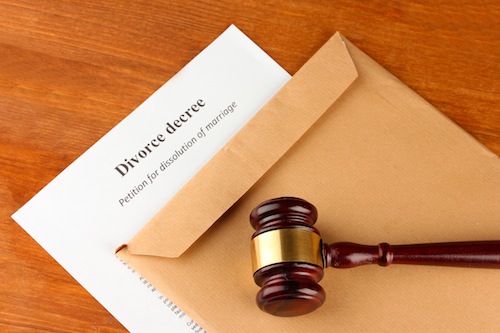The Steps to Take When Divorcing in Rhode Island
 There is no doubt that marriage is a sacred union of two people who love each other and want to spend the rest of their lives together. An old adage says that marriage is not the same as a spoonful of hot rice that can be spit it out immediately if you are not able to tolerate the heat.
There is no doubt that marriage is a sacred union of two people who love each other and want to spend the rest of their lives together. An old adage says that marriage is not the same as a spoonful of hot rice that can be spit it out immediately if you are not able to tolerate the heat.
Getting married is quite a process in itself, but ending a marriage can be quite a bit more complicated. Entering into a divorce proceeding and searching for divorce documents in Rhode Island is a multistep process:
- If the divorce cannot be settled without litigation, you will need to consult a divorce attorney in Rhode Island who can litigate the case in the court, before a judge. Interview at least three attorneys before making your final decision. Ideally, you will want an attorney with at least five years of experience in divorce and family law who can fight for your rights but also settle the case as quickly as possible
- Before you can finally file your divorce papers, you will need to complete residency and filing requirements as required by law.
- The plaintiff—or initiator of the divorce case—should be a domiciled inhabitant of the state to insure the court has jurisdictional rights to handle the case. He or she must be able to justify that he or she has lived in Rhode Island for a year prior to the submission of the complaint. The case must be filed in the county where the plaintiff or the defendant lives. This should meet the one-year residency requisite according to the General Laws of Rhode Island Chapter 15-5-12.
- You will also discuss the legal grounds for divorce with your attorney. You, the plaintiff, and your lawyer should be able to prove that your complaint is within the proper Rhode Island case grounds. An appropriate lawful ground is something that both parties have agreed upon and can substantiate, or a complaint that the plaintiff or the filing spouse wants to justify to the court. The divorce grounds in Rhode Island are as follows:
1. No-Fault Divorce
(a) Irreconcilable differences that have led to the destruction of the marriage. (b) Living separately without cohabitation for 3 years.
2. Fault Divorce
- This is a divorce case that is due to, but not limited to, any of the following:
- Adultery
- Impotency
- Extreme cruelty
- Willful desertion of five years of either of the parties or willful desertion for a short amount of time in the prudence of the court.
- Habitual, extreme, and dissipated utilization of morphine, opium, or chloral.
Continued drunkenness.
Thus, when it comes to the case grounds, you have to be open with your chosen attorney so that you are able to get the right divorce advice. When it comes to the divorce forms, all can be directly acquired from the court. The plaintiff or the pursuer of the divorce case should complete the complaint form.
He or she should also complete the verification form and then forward both forms to the family court at the county where the plaintiff lives. Once these divorce papers are filed to the court, the initiator of the divorce case will receive a blank copy of the summons. This will be forwarded to the defendant spouse. To complete the summons, the plaintiff should provide a similar set of information that was included on the complaint.
In case you and your spouse have children, you have to talk to your lawyer and get divorce advice on this matter. Take note: you have to consider the laws of Rhode Island about child custody. Let’s say, these are the first couple of steps of divorce in Rhode Island. Aside from being financially prepared, you have to be ready physically, emotionally, and mentally.








